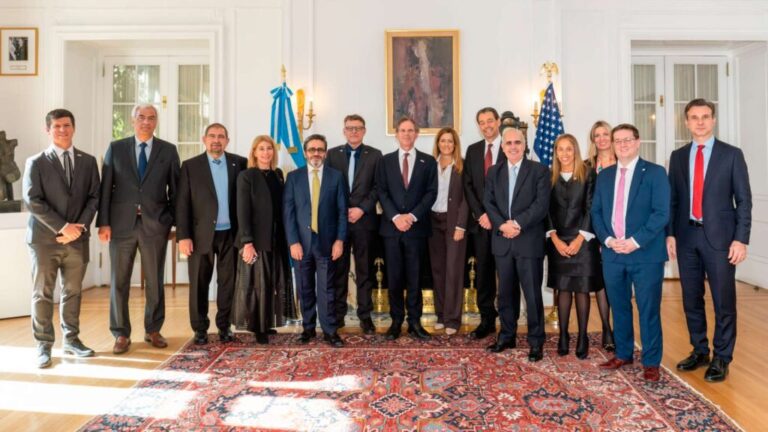Argencon organized a webinar titled “RIGI applied to the technology sector,” an opportunity to explore the implications of the General Investment Incentives Regime (RIGI) in the technological field. This event brought together leading industry experts who discussed how RIGI can become a catalyst for the development of the technology industry in Argentina, highlighting both the advantages of the regime and the opportunities it presents for the country as a whole.
One positive aspect of RIGI is its potential to improve the international competitiveness of Argentine companies. Ariel Becher, Tax Partner (ITTS) at EY Argentina, highlighted that investments in technology not only benefit local companies but also allow them to compete in the global market. As companies improve their infrastructure and adopt new technologies, they become more attractive to foreign investors, which can result in a greater inflow of capital into the country. Likewise, the commitment of investment projects to hire up to 20% of local suppliers is a strategy that not only promotes the development of the technology industry but also generates a multiplier effect on the economy. Argentine companies that integrate into the supply chain of these projects will have the opportunity to grow and modernize, thus creating a more robust industrial ecosystem.
Promoting local collaboration and sustainable development
RIGI also focuses on collaboration between local companies and investment projects, which represents a great opportunity to strengthen the local economy. Gonzalo Brest, Tax and Legal Partner at KPMG Argentina, emphasized that the participation of local suppliers in investment projects not only gives them access to new markets but also contributes to the sustainable development of the region. This can lead to an increase in demand for local products and services, which translates into more jobs and a significant boost to the regional economy. In addition, creating a conducive environment for innovation becomes a key element to attract talent. RIGI can encourage professionals and experts to settle in Argentina, thus strengthening the country’s human capital. Investment in training and education, in parallel with RIGI, will ensure that the workforce is prepared to meet the challenges of the modern technology industry. For his part, Christian Fuciños, Partner at Deloitte Argentina, highlighted the importance of the General Investment Incentives Regime (RIGI) to enhance the competitiveness of the technology sector in Argentina. He stressed that this regime not only seeks to attract significant investments but also creates a favorable environment for local companies to grow and develop. Fuciños emphasized that by providing tax incentives and customs benefits, RIGI can become an engine for innovation and technology transfer in the country. In addition, he stressed that these opportunities can facilitate the creation of skilled employment and contribute to strengthening the economy, positioning Argentina as a benchmark in the technology sector at the global level. Experts agreed that RIGI represents an opportunity for Argentina to recover the ground lost in the field of technology investment. Juan Manuel Magadán, Tax Partner at PwC Argentina, concluded that this regime is a step towards the modernization of the country, creating a more attractive environment for investments that can transform the Argentine economy. The panelists emphasized the importance of both the public and private sectors working together to maximize the benefits of RIGI and ensure that Argentina positions itself as a leader in innovation in the region.



